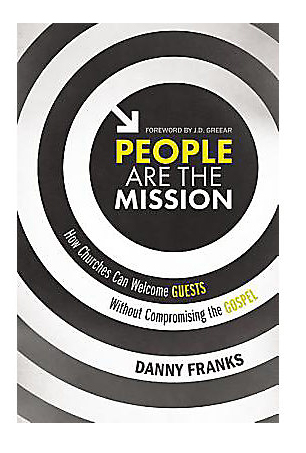
By Ben Mandrell
Every pastor and church leader I know wants a healthy ministry. You can have the most state-of-the-art campus, a rare gift for preaching, and in-the-black finances. But if a church leader doesn’t have a meaningful connection with ministry volunteers, all of those other things barely matter.
According to Lifeway Research, the greatest need pastors identified is developing leaders and volunteers (77%). One of the ways to do this is cultivating a healthy environment for relationships to flourish. But in the hurried pace that ministry can sometimes create, leaders can experience disconnects with volunteers.
If the words disconnected or chaotic could be used to describe your volunteer ministry, consider these as reasons:
You don’t invest in friendships with them.
My friend Gary Hollingsworth says that “trust travels on the highway of relationships.” A healthy volunteer ministry is all about building relationships with those who serve in the church. It’s often the personal connection that compels people to roll their sleeves up and participate in the mission.
Remembering our time in pastoral ministry, my wife, Lynley, has said, “Saying ‘thank you’ eye to eye, face to face, was always more effective than having a room where volunteers can go get a snack. They’re not there for snacks; they are there for relationships.”
Especially as volunteer practices and capacity seem to constantly change along with the moving target of the pandemic, leaders should be calling their volunteers to see how they’re doing; not merely to see when they will be able to come back and get things done. They need to see that their leader has personally taken an interest in them for who they are before what they can accomplish in the church.
If someone is showing up to serve for the third or fourth time and you don’t know more about them than when they first joined the team, that’s a problem. That relationship building is part of the trust in the ministry atmosphere you’re creating.
Another reason your volunteer ministry might not be thriving is …
You don’t handle conflict well.
It’s not a matter of if—but when—you’ll have conflict with your volunteers. You’re doing life together. Relationships are going to collide. An email is going to get misinterpreted. Visions are not always going to line up.
Conflict management rides on the coattails of friendship investment. The less we know our volunteers, the less capable we are of reading the temperature in the room and sensing if the relationship has cooled between you and a volunteer.
Danny Franks, pastor of guest services at The Summit Church, joined us on “The Glass House” to discuss leader/volunteer dynamics. He told a story about a time he offended a volunteer through miscommunication. Because he had invested in a long-standing relationship with the volunteer, he was self-aware enough to know something had changed in the way she related to him. This is how relationships and conflict management go hand in hand.
Leader also need to un-busy themselves in order to pay more attention to the people who serve alongside them. Constantly running from room to room and being committed to too many things stifles those little conversations that keep the environment healthy. You’re too distracted to notice if something’s a bit “off” with the countenance of your servant leaders.
Yes, sometimes the conflict is instigated by the volunteer. But when those moments happen—when there is a disagreement—it’s music to the ears of a volunteer when a leader recognizes their responsibility, comes to them and says, “I didn’t handle that well.”
Humility wins the day. This brings staff and volunteers closer. Intimacy grows when we embrace healthy conflict rather than avoiding it.
